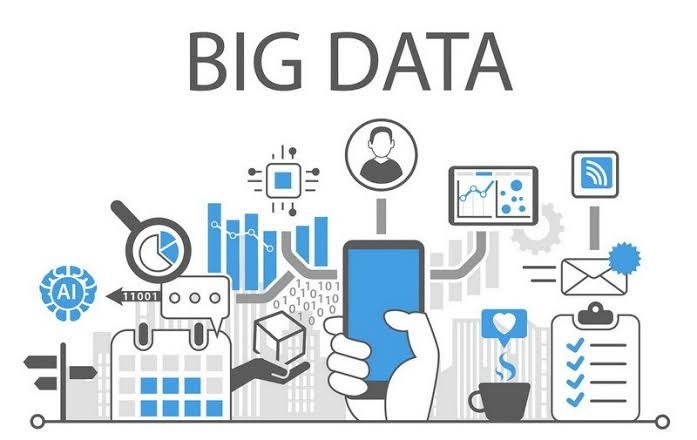Hello my wonderful blurtian family, how are you all doing today? I believe you are doing great. Thank goodness am also doing great.
Today, I will be sharing with you on the title "Big data". Just read and learn as we educate each other here on blurt.
To a layman's understanding, it simply means a data that is huge or large in size.
Therefore big data is correctly outlined as an data set whereby it's size or kind is much on the far side the ability of ancient database thats able to capture , manage, and process the desired data with a very low latency.
It can also be said to be the collection of data that is large in volume or size yet it grows exponentially with time. Data with so many fields tend to offer greater statistical power while the data with a higher complexity tend to lead to a higher false discovery rate.
Big data mainly refers to the use of predictive analytics, the user behaviour analytics or other advanced data analytics means that can be able to extract values from big data and infrequently to a selected size of a big data set.
STRUCTURED BIG DATA:- This type of big data are data that are stored, accessed and being processed in the form of a fixed format.
SEMI-STRUCTURED DATA:- This type of data contains both the forms of data for instance semi-structured data can seen perfectly in structured form but actually not defined.
UNSTRUCTURED DATA:- This type of data is a data with an unknown form or format. It definitely poses multiple challenges in terms of it's processing.
Below are some of the basic characteristics of big data. They are usually known as the 6 V's of big data.
VOLUME:- This refers to the amount of generated or stored data. The size of the data itself will determine the value and the potential insight whether it is a big data or not.
VARIETY:- This refers to the type and nature of the data itself. That is the change in its type and nature from structured to semi-structured or even unstructured data will challenge the existing tools and technologies. By that process it helps to analyse data towards effective usage of the hidden insight that is exposed from the data collected.
VELOCITY:- This refers to the speed at which the data is being generated and processed as well in order to meet the demands and challenges that lies in the path of growth and development. Big data is always available in real time compared to the small data.
VERACITY:- This refers to the truthfulness and reliability of the data, which equally relates to the data quality and data value. Big data will not only be big in size but it must also be reliable in order to achieve the required value in the analysis of the data.
VALUE:- This refers to the worth of information that can be gotten by processing and analysing the big data sets. Values represents the profitability of information that is retrieve from analysed big data. It is measured by the assessment of other qualities of big data.
VARIABILITY:- This refers to the characteristics and features of changing the structure or source of the big data. It may include Structured, unstructured or either the combination of both Structured and unstructured data.
It enables better operational efficiency.
Big data provides early identification of risk to a product or service if there is any need.
Big data of course helps to improve customers services I the sense that traditional feedback are adequately replaced with new system that is designed with big data technologies.
It helps businesses to be utilized outside intelligence while making or taking decisions.
